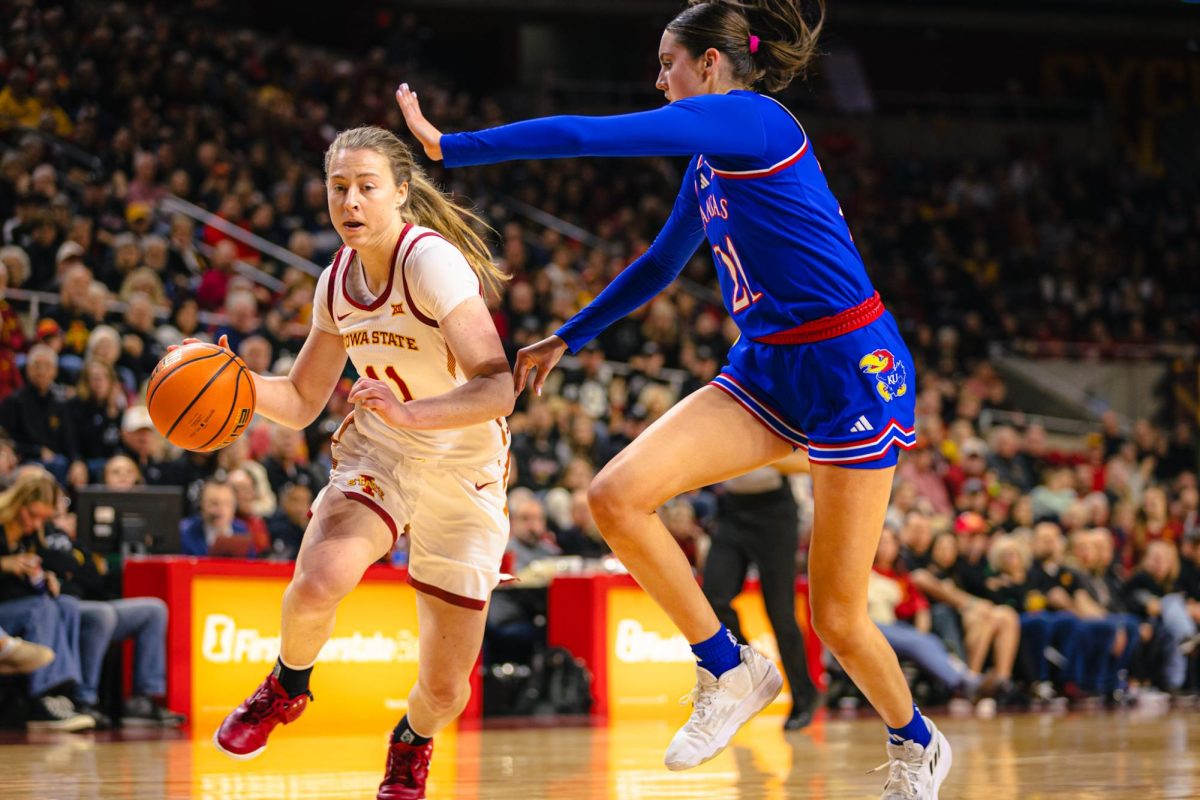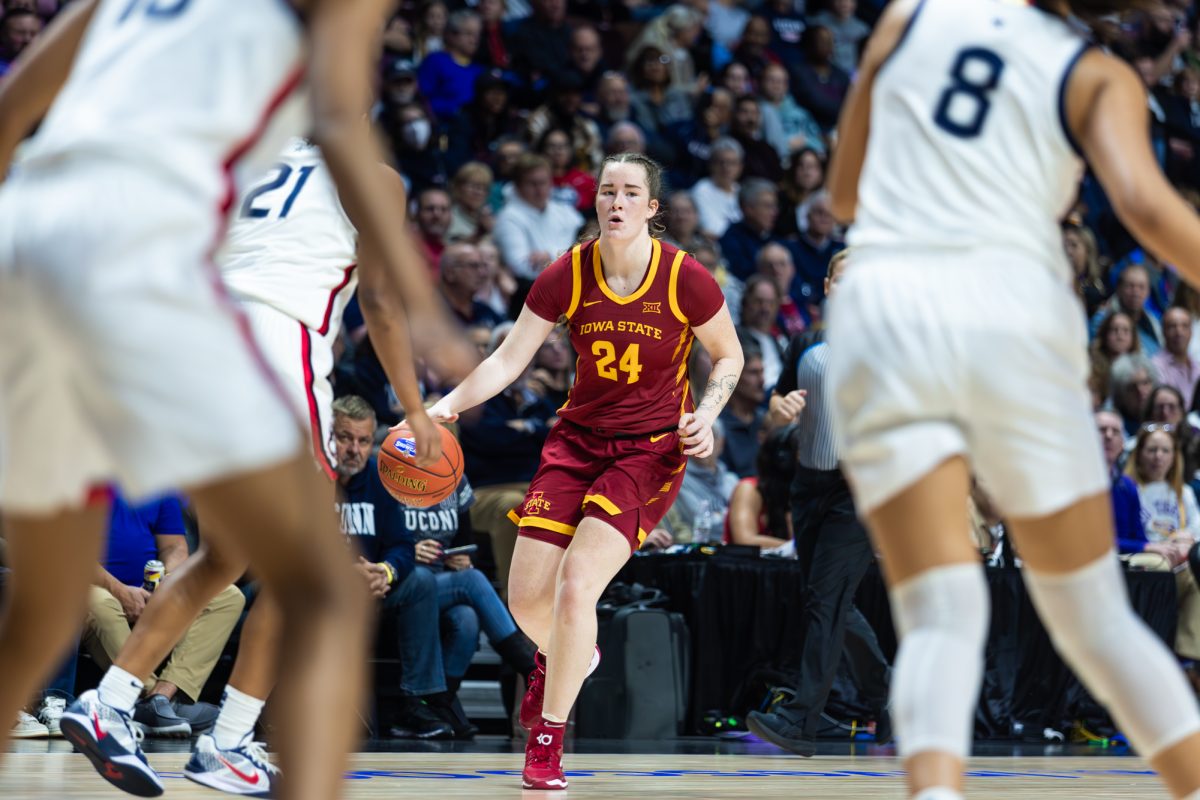Retailers hope ‘Cyber Monday’ revamps holiday shopping
December 1, 2008
NEW YORK (AP) — The Thanksgiving shopping weekend may not have been the disaster some had feared, but unprecedented discounts and tempered buying likely resulted in overall soft sales as a buying binge on Friday quickly fizzled. Now, online retailers are ramping up deals to turn skittish shoppers into “Cyber Monday” spenders.
The term “Cyber Monday,” coined by the trade group the National Retail Federation in 2005 to describe the Monday after Thanksgiving, has in the past been the unofficial kickoff for the online shopping season. But with more retailers advertising their deals ahead of time, and as more consumers have high-speed access at home, the day has lost its luster.
Merchants are struggling to entice financially strapped shoppers to spend for the rest of the holiday season, which is expected to be the weakest in decades. Online sales are expected to be fairly flat after years of strong growth.
“The consumer clearly is showing us that there is a holiday to be had, but the consumer wants bigger deals. And they are not panicking,” said Marshal Cohen, chief industry analyst at NPD Group, a market research firm. “They’re willing to wait it out at almost any price.”
Cohen predicts sales for the Thanksgiving weekend, the traditional start of the holiday shopping season, were at best even with the holiday weekend a year ago.
The National Retail Federation offered a rosier outlook for overall holiday spending, predicting that retail sales will rise 2.2 percent from a year ago — which would still be the slowest growth since 2002. However, many analysts expect the period could show a rare drop in sales, and Web shopping is being hit along with brick-and-mortar stores. Last year’s holiday growth rate was 19 percent for online spending from the previous year.
A more complete sales picture of how the Thanksgiving shopping weekend fared will be known by Thursday, when the nation’s retailers report November same-store sales, or sales at stores opened at least a year.
Still, the crowds that turned out for the early morning specials on Friday were a welcome relief to the nation’s retailers — who since mid-September have suffered from the most dramatic falloff in spending in decades amid a ballooning financial crisis.
Merchants opened their stores as early as midnight on Thursday, holding their breath wondering if shoppers would snap up the pre-dawn specials. But while the crowds did come out to buy, many analysts say they were thinner than last year, and according to many analysts the pre-dawn buying binge fell off sharply during the remainder of the weekend.
Shoppers were also focused on bargains and smaller-ticket, items like blenders, sweaters and video games as they worry about layoffs, tightening credit and shrinking retirement funds.
New York-based retail consultant Walter Loeb said he expects sales for the weekend to be below year-ago levels, based on discussions with key executives from discounters and department stores.
But, he added, “It wasn’t as bad as some feared. … People were buying, but they bought cheap, and the results were not as good.”
Loeb expects a 1 percent drop in total retail sales for the November and December period, compared with a year ago.
John Morris, a retail analysts at Wachovia Capital Markets, wrote in a note published Monday that traffic and business were strong on Friday, but the “strength did not carry through the remainder of the weekend as business fell off sharply on Saturday.”
“After a slow start to November, we believe strength on Black Friday was not enough to save the month,” he wrote.
Karen MacDonald, a spokeswoman at Taubman Centers Inc., which operates 24 malls in 11 states, said that based on a sampling of malls, business on Friday was unchanged to up mid-single digits from a year ago. But on Saturday, sales were unchanged to down slightly.
“Friday was encouraging, but Saturday wasn’t as good as we hoped,” she said.
But Toys “R” Us Chief Executive Jerry Storch said Sunday that customer traffic was at least as strong as during the Thanksgiving weekend a year ago, and said he was “definitely pleased with sales.”
Geoffrey Webb, director of advertising and sales promotions at K-B Toys Inc., said Sunday that sales for the weekend were equal or slightly better than last year.
“We are very encouraged by the response,” he said.
According to preliminary figures released Saturday by ShopperTrak RCT, a research firm that tracks total retail sales at more than 50,000 outlets, sales rose 3 percent to $10.6 billion on Friday from the Black Friday a year ago.
ShopperTrak RCT is expected to release data for the combined Friday and Saturday period on Monday. Bill Martin, ShopperTrak’s co-founder, said he wasn’t sure if the momentum was sustained through the rest of the weekend.
The day after Thanksgiving — dubbed Black Friday because it historically was the day when a surge of shoppers helped stores break into profitability for the full year — has been fading in importance this year as stores were more aggressive in discounting and pushing up sales.
While Black Friday isn’t a predictor of the holiday season, it does act as a barometer of consumers’ willingness to spend. Complicating matters is a shorter buying season — 27 days between Black Friday and Christmas — instead of 32 last year, putting more pressure on retailers.





